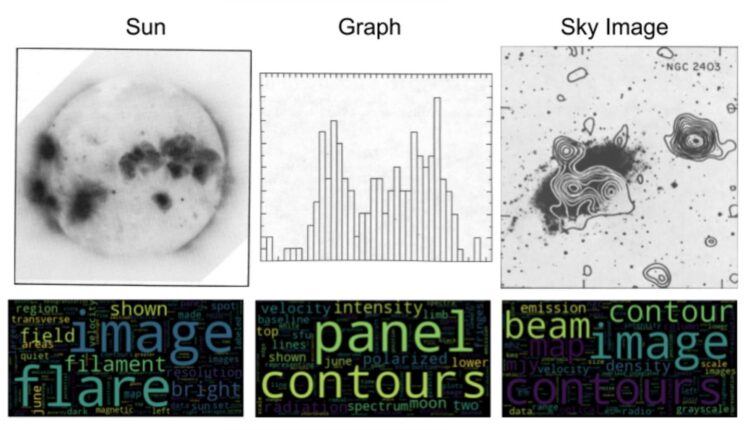Jill Naiman, teaching assistant professor in the School of Information Sciences at the University of Illinois Urbana-Champaign, has received a $506,912 grant from the National Aeronautics and Space Administration (NASA) to digitize predigital scientific literature. Her project, “The Reading Time Machine: Transforming Astrophysical Literature into Actionable Data,” is a collaboration with Harvard University and the Astrophysics Data System (ADS), a digital library portal operated by the Smithsonian Astrophysical Observatory (SAO) under a NASA grant. With over 15 million records, ADS is one of the most important archives in the scientific field of astronomy.
“Newer documents are ‘born digital,’ making them machine-readable and parseable,” said Naiman. “This has not only helped domain scientists find relevant research more efficiently, but through methods like natural language processing, it also has facilitated new discoveries in these fields.”
Naiman’s project aims to extend these capabilities to predigital documents by extracting their text, figures, and tables, allowing researchers to apply the same information mining methods that are available to “born digital” documents. This will result in more easily searchable documents and new discoveries. The work will also enhance the screen-reading capabilities of these documents to make them more accessible.
For the project, researchers will use optical character recognition and object detection methods to find and “extract” any tables and figure captions in the text. According to Naiman, this is something that has been done in biomedical literature but not in astronomy. After the images are extracted, they will be classified (i.e., graph, photo, picture of sky), and the figure labels will be parsed to extract science-relevant information.
“In each step, we plan on publishing a database–to be hosted by ADS–and the code so that other folks can do the same to their ‘old’ scientific literature,” she said. “The wealth of science generated by such ‘indexing’ efforts in other STEM fields has demonstrated that we have only scratched the surface of the discoveries possible when the community has access to science-ready data collected from the literature.”
Naiman earned her PhD in astronomy and astrophysics from the University of California, Santa Cruz, and completed National Science Foundation and Institute of Theory and Computation postdoctoral fellowships at the Harvard-Smithsonian Center for Astrophysics before coming to the University of Illinois. She is a Fiddler Faculty Fellow at the National Center for Supercomputing Applications (NCSA) at Illinois.
###
Media Contact
Cindy Brya
[email protected]
Original Source
https:/





